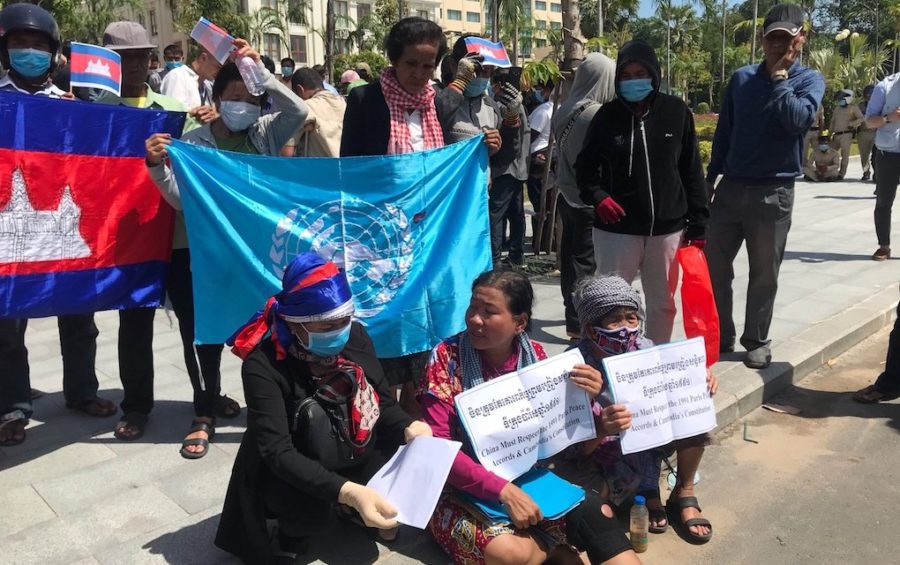Citing an “alarming deterioration” in Cambodia’s democratic rule, a group of U.S. politicians appealed to their government to ramp up sanctions against Phnom Penh, as analysts said pressure from the U.S. was likely to rise with the coming change in administration.
Four House representatives and four senators, including Edward Markey and Elizabeth Warren, wrote in a letter to the State Department that Prime Minister Hun Sen is “no longer responding to ordinary diplomatic engagement.”
“We are urging you to address the alarming deterioration in human rights protection and democratic rule in Cambodia,” the letter says.
It cites the dissolution of the main opposition CNRP in 2017 and recent arrests of activists and former party members. “For many years a de facto one-party state, Cambodia now openly prohibits pluralism,” it says.
The U.S. politicians call for targeted sanctions under the Global Magnitsky Act against the leaders of the CPP, police and military police.
The act has so far been used by the U.S. against timber tycoon Try Pheap and generals Kun Kim and Hing Bun Heang, while the CNRP has recently lobbied for the widening of sanctions under the act.
The U.S. lawmakers’ letter also calls for a review of Cambodia’s tariff privileges. The E.U. took a similar course of action this year, partially suspending duty-free trade with Cambodia over human rights concerns. Exports to the U.S. have increased 22 percent year-on-year over the first nine months of the year.
Government spokesperson Phay Siphan declined to comment on the letter, saying he had not yet seen it. It was a sensitive issue, and there would soon be a new U.S. administration so he did not want to make general comments about U.S. sanctions, he said.
Joe Biden was voted president-elect earlier this month to replace outgoing U.S. president Donald Trump, though Trump has yet to concede.
Sophal Ear, associate professor of diplomacy and world affairs at Occidental College in Los Angeles, said the upcoming change in U.S. administration would make it more likely for Cambodia to be hit with further sanctions.
“A Biden administration is more likely to demand accountability for the precipitous decline in human rights and democracy in Cambodia,” Ear said in an email. “The China argument won’t be the only thing on Cambodia’s case, it will be that PLUS democracy, human rights, and freedom being scarce.”
Political analyst Em Sovannara agreed, and said growing trade with the U.S. raised the potential cost of sanctions for Cambodia.
“The United States can have more influence by putting pressure through freezing the assets of political figures in the world than the European Union,” Sovannara said.
Foreign Affairs Ministry spokesperson Koy Kuong said he was reviewing the letter, but said the Cambodian government had already repeatedly explained itself.
“Nothing is new,” Kuong said.
Draft legislation for widespread sanctions against Cambodia has been repeatedly tabled in the U.S. Congress, but has not been adopted.
On Facebook on Tuesday, the U.S. Embassy also announced a policy to not issue visas to wildlife and timber traffickers.
A spokesperson said there was no public list of whom visa sanctions would apply to.
Meanwhile on Monday, the U.N. issued a statement criticizing the systematic criminalization of human rights defenders, noting the arrests of unionist Rong Chhun over controversial remarks related to the Vietnamese border, and several protesters and environmentalists this year.
“There seems to be no limit to who the authorities will target, making their actions in recent months appear as a concerted attempt to erode civic space and stifle the work of human rights defenders,” Mary Lawlor, the U.N. special rapporteur on the situation of human rights defenders, said in the statement.
Additional reporting by Ouch Sony and Michael Dickison












